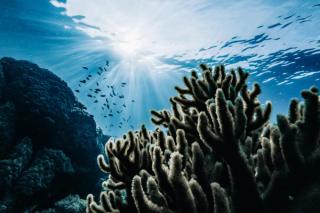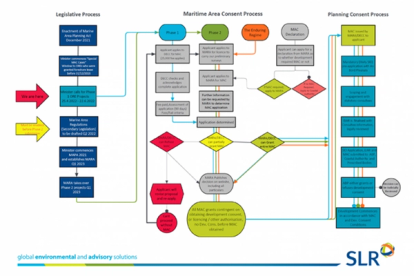
The challenge of investigating PFAS contamination: Current strategies and innovations
by Allison Cranwill
View post

One of the most precious natural resources in Ireland is its extensive maritime area which is vast and can be utilised for a multitude of uses, if the regulatory frameworks are in place to support them. Marine spatial planning in Ireland has taken several years to be compliant with EU Directive 2014/89/EU (Marine Spatial Planning Directive) issued in 2014, and we still aren’t there yet.
A number of steps have been taken however, since this Directive has been published, including:
While there are many more steps ahead of us to have a fully functional planning regime underpinned by regulations and overseen by the Marine Area Regulatory Authority (MARA), the publication of the Marine Area Planning Act (MAPA) in December 2021 has established in law a new planning regime for the maritime area, which is critical to any future offshore development.
As with all pieces of complex legislation, it is crucial to map out the processes which are contained within the legislation itself to understand the full picture of what is required - in this instance, to obtain Marine Area Consent (MAC) prior to entering the planning arena. The Marine Area Planning Act is no exception, with numerous phases of projects revolving around MAC in tandem with legislative changes and planning consent processes.
Phase 1 and 2 projects which are set out in this legislation relate to offshore renewable energy developments, yet it is difficult to ascertain how each part fits: Legislative, MAC and Planning.

MARA process flow
What process must be followed under the new regime to receive consent?
I have prepared this process flow of the relevant legislation in tandem with the Maritime Area Consent Process and Planning Consent Process to help assist in understanding to better understand when Phase 1 and Phase 2 projects come into force.
What is important to note to our renewable energy clients are the particular phases of relevance at this time. We are aware that Phase 1 ‘Special MAC Cases’ are currently being processed within the first MAC window from 25th April-22nd June 2022 by the Minister for the environment, Climate and Communications (DECC) Special MAC cases were projects that either applied for or were granted a foreshore lease before 31 December 2019; or projects with a valid connection agreement or confirmation of eligibility for such a grid connection offer issued before 31 December 2019.
This process flow also shows projects which are eligible for Phase 2 and the process for which is relevant. Phase 2 projects will be processed by MARA after its establishment in Q1 2023 and after the publication of the Maritime Area Regulations.
MAC Declaration
The Section 77 MAC Declaration is available as a separate process for other offshore developments. For those familiar with the planning process, a Section 77 is akin to an onshore Section 5 declaration, whereby a project description and supporting documentation is sent to MARA to determine whether the application is eligible for MAC, or if the project should be submitted to a coastal authority.
Planning consent process
The planning consent process post MAC is currently indicated as a Strategic Infrastructure Development application, however, there is some ambiguity on the planning process until the accompanying Marine Area Regulations are published, sometime in Q2 of 2022.
Current ambiguities
What is important to note is that while Phase 1 projects are currently under consideration by the DECC, they are being determined without the accompanying regulations as special MAC cases, covered off by Section 100 of the Maritime Area Planning Act under “relevant maritime uses”. Phase 2 projects are to be determined following the publication of the Maritime Area Regulations and the establishment of MARA, which set out classes and uses which MAC applies. We will know more once the Regulations are published. The DECC has issued MAC Application Guidance, to better assist applicants in the MAC consent process.
If you would like to find out more, please contact us.

by Allison Cranwill

by Anna Cockburn, Jane Gan

by Georgina Watkins, Heather Kerr